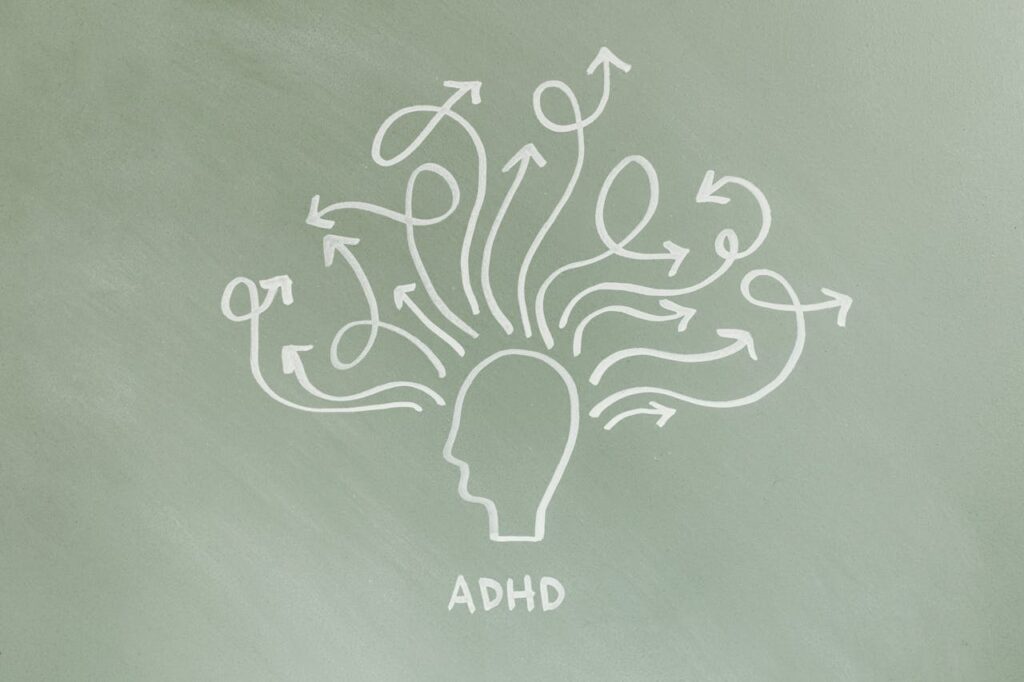Should ADHD be a diagnosis?
People with Attention Deficit Hyperactivity Disorder (ADHD) often struggle to concentrate. They commonly have issues with timekeeping, as well as with relationships with other. They are more prone to suffering from alongside anxiety and depression. These patterns can have profound impacts on the workplace.
The rate at which ADHD is being diagnosed in the developed world is rapidly rising, amongst both adults and children. The prevalence of ADHD in the UK is estimated at between 3-4% of the adult population. The number of NHS prescriptions for ADHD medication doubled between 2018 and 2023.
There are many factors behind the rise in cases being diagnosed. Clinicians and the general population are much more aware of the condition. However, with so many people being diagnosed, experts are questioning whether ADHD should be seen as a disorder.
It is possible that ADHD is a natural point on the spectrum of neurodiversity, rather than a unique condition. There is evidence that non-pharmaceutical interventions, such as offering tools to cope with the challenges of daily life (such as time planning apps, noise-cancelling headphones, protected time for emails etc) and a supportive environment can make a difference.
ADHD is difficult to properly define and diagnose, although there are many online services offering rapid diagnostic services. Diagnosis usually involves a series of validated questionnaires about attention, impulsivity and hyperactivity. Diagnosis should only be made by a specialist Psychiatrist. Diagnostic criteria can vary widely.
Diagnostic criteria
Using World Health Organisation diagnostic criteria some 1-2% of British children and adolescents qualify. Using the American Psychiatric Association criteria, the rate would be 3-9%.
Diagnoses are hugely subjective and therefore can also vary widely between clinicians. Many more boys than girls are diagnosed with ADHD, although this may be because girls are better at “masking” the symptoms. Some of the symptoms can be mistaken for anxiety. There are no reliable bio-markers, so there are no blood tests that can help a diagnosis. MRI scans and genetic profiling have revealed very little, other than the condition can be inherited.
Medication can be very effective in treating ADHD. Stimulants such a Ritalin can work quickly and can help concentration. They can be life-changing for people with severe symptoms. There are risks to their use though, such as links with heart problems and a risk of psychosis. They can affect growth rates in children.
Because the diagnostic criteria are relatively arbitrary across different countries, some scientists are arguing that the diagnostic criteria should be reviewed. ADHD symptoms can often occur in people with Autism and Dyslexia. Problems with emotional regulation are excluded from ADHD diagnostic criteria, although occur frequently, as they do in people with Autism.
Some scientists are suggesting that the ADHD label is not helpful and tailoring help to the individual’s specific cognitive, behavioural or emotional challenges would be more appropriate.
Research has shown that symptoms are also often suppressed in the workplace. This can cause problems and simple adaptations, such as suppressing background noise can make a big difference, as can flexible working patterns.
Simple environmental adaptations could make a big difference for the roughly 5% of people with ADHD-like symptoms, who become medicated to deal with problems that may be caused by their surroundings, rather than their physiology. That, in turn, raises the question of whether ADHD should be a diagnosis in its own right.
About Occupational Health Assessment Ltd – a nationwide occupational health provider
Occupational Health Assessment Ltd provides rapid access to expert occupational health support for businesses across the United Kingdom. Appointments are available nationwide within two days.
With a unique occupational health assessment service, night worker health assessments, fitness certifications and access to clinics in Belfast, Birmingham, Bradford, Brighton, Bristol, Cardiff, Coventry, Derby, Edinburgh, Glasgow, Hull, Leeds, Leicester, Liverpool, London, Manchester, Newcastle, Northampton, Nottingham, Plymouth, Portsmouth, Reading, Sheffield, Southampton, Stoke, Surrey and more, the business provides high quality, expert medical advice.
Please contact us for further information or assistance.
